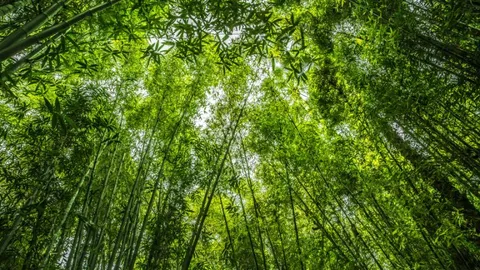Sustainable Materials: Why Bamboo is the Future

In an era where sustainability is no longer just an option but a necessity, bamboo stands out as a remarkable material that offers numerous benefits for manufacturing. Its rapid growth, renewability, and minimal environmental impact make it an ideal choice for eco-conscious businesses and consumers alike. Here’s why bamboo is the future of sustainable materials.
Rapid Growth and Renewability
One of the most significant advantages of bamboo is its astonishing growth rate. Unlike traditional hardwoods that can take decades to mature, bamboo can grow up to three feet in a single day and reach full maturity in just three to five years. This rapid growth means that bamboo can be harvested more frequently without depleting natural resources, making it an incredibly renewable material.
Environmental Impact
Bamboo’s environmental footprint is impressively low. It requires no pesticides or chemical fertilizers to thrive, reducing the amount of harmful substances released into the environment. Additionally, bamboo plantations absorb more carbon dioxide and release more oxygen than an equivalent stand of trees, contributing positively to the reduction of greenhouse gases.
Soil and Water Conservation
Bamboo has a robust root system that helps to prevent soil erosion and maintain soil health. This is particularly beneficial in areas prone to erosion, where bamboo can stabilize the soil and improve its fertility. Moreover, bamboo requires significantly less water compared to other crops, making it a water-efficient choice for regions facing water scarcity.
Versatility and Durability Despite being technically a grass, bamboo is incredibly strong and durable. It has a higher compressive strength than concrete and a tensile strength that rivals steel, making it suitable for a wide range of applications, from construction to furniture making. Bamboo’s natural flexibility and resistance to pests and fungi further enhance its durability, ensuring that products made from bamboo are long-lasting and reliable.
Economic Benefits
The cultivation and use of bamboo can also bring substantial economic benefits. It provides a sustainable source of income for farmers and communities in rural areas, particularly in developing countries. The versatility of bamboo means it can be used to produce a wide range of products, from everyday household items to high-end furniture, creating diverse opportunities for businesses and artisans.
Conclusion
As the world moves towards more sustainable practices, bamboo emerges as a leading material that aligns with environmental goals. Its rapid growth, low environmental impact, and incredible versatility make it a perfect choice for sustainable manufacturing. By choosing bamboo, we can reduce our ecological footprint and support a healthier planet for future generations.

